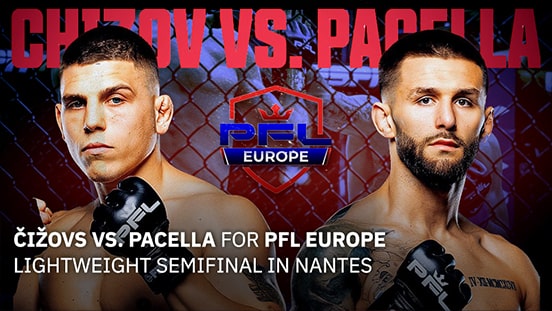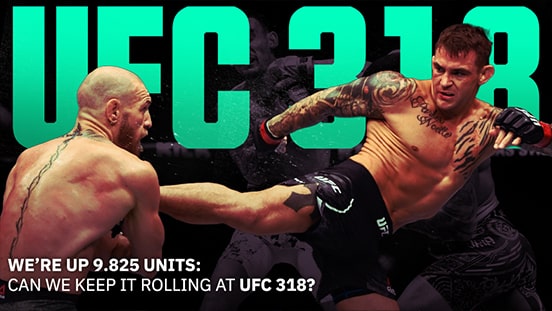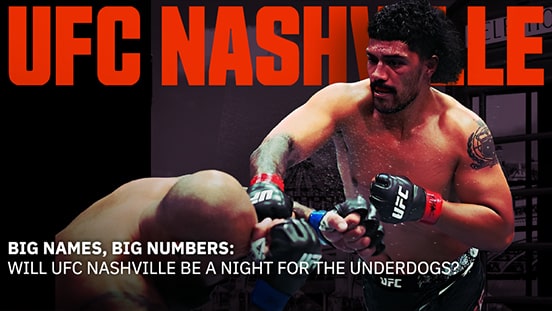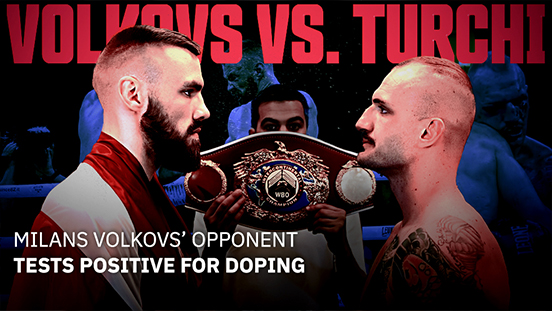At 26, Aleksandrs Čižovs has already marked his name into the annals of Latvian combat sports history. As the first fighter from Latvia to sign with Professional Fighters League (PFL), Čižovs has become a trailblazer for his nation on the global stage.
Training alongside UFC star Khamzat Chimaev in Sweden, Čižovs’ dedication to perfecting his craft has taken him from local circuits to the global limelight, where he’s faced off against tough competition in one of the biggest MMA organizations. His rise has been anything but conventional—he transitioned from the streets of Olaine to the Ukrainian WWFC, to competing in the PFL’s Grand Prix, a million-dollar tournament that showcases the world’s top fighters.
In this interview, we revisited Čižovs’ earlier days in the scene, discussed the new generation of fighters and touched upon the importance of men’s mental health—especially in the lonely world of combat sports.
You had to miss one fight—but let’s not talk about injuries! You’ll be back in action soon.
Yeah, the details are never that important. You’d think nobody is listening, but I’ve had all kinds of opponents… It will take me a month to fully recover. I had surgery, and my doctors said rehabilitation won’t take long. Two weeks have passed; two more and I will be ready to train again.
Professional sports and injuries are like yin and yang. There is not a single athlete who hasn’t had that dreadful feeling of “oh, it’s serious this time”. Just working out is good for your health. You know, training just for your well-being. In this industry, on this level, what we do puts a constant stress on the body. But we don’t think about it. What we think about is how to recover. [laughs] Massages, saunas, physiotherapy… It’s like owning a car. You have to take it to the shop. You have to take care of your body like your dream car.
If you’re a pro in the ring, you have to be a pro outside of it. Regimen, discipline, eating, good sleep. You can’t expect good results during a fight if you go party straight after the fight instead of going home and starting the recovery process. Even if you didn’t take bad hits, your body is subjected to adrenaline and it needs to be processed both physically and mentally. When I was younger, I was one of those guys on the street. Cigarettes, alcohol, the whole thing.
Was it difficult to adapt to a professional fighter’s lifestyle? You found your focus a bit later on, as you’ve mentioned before.
There is a time for everything. Everyone leads a life of their own. I personally know athletes who have been doing the “right” things since childhood. Guys whose own dads were their coaches. They have been model students who ended up never getting anywhere. And then there are guys who weren’t as lucky with their situation, but still made it global. Here’s the thing—I mean, it’s good if you start early, but it’s never going to be a real indicator. Life is very interesting. And it is my history, my life, a part of me. I don’t want to change anything about my life. The way I used to be has brought me here.
Those guys from the street, they have the anger and the character. I was always in stressful situations outside of fights. Run-ins with the police, street fights. That’s not good. But it builds character. As a man, these events then serve as motivation for you to never be like that again, and to make the best of it. When you go into the ring, you’re under that same stress again. You feel pain and you break if you’ve spent your whole life in a state of comfort.
I was 15 when I started training. We had a team of ten guys my age. I was the most talentless of them all, had a lot of losses as an amateur. Nobody thought I’d ever amount to anything. After 10 years, I’m the only one left. All the talent I used to see just quit, but I didn’t.
Would you say that emotional support is an important aspect here?
Definitely. Of course, my family and close friends motivated me, but my coach played a big role. I trained well, but had issues with my way of living. He sorted me out, so to speak. “Don’t do this, don’t do this like that.” Thanks to him, I am now the best version of myself.
My family didn’t have much money. We weren’t rich. But they have given me everything so that I can do what I love. Now I want to make money doing it. If I was offered another job that paid me millions, I would turn it down. This means too much to me.
Growing up, I didn’t think about anything else but sports. Now I want to give my family the chance to never worry again. That’s my biggest goal. Sure, I also want a sports car and a big house, but my family comes first. Then me.
What mistakes do you observe most often in young fighters?
Street romance. [laughs] I know we’re all just men, but we have to stay away from it. It seems great, but it can ruin everything. It’s distracting. No parties, no clubbing—it will all be there when you’re on top of the world. All the young people now think, “Man, I’m young, I’ve got to party!” But you can relax in your 30s and 40s. Sex, booze and women will still be there, and on a different level. Actually, it will be even better!
There are a lot of talented guys. The main thing is to want it, and you can make it anywhere in the world. But the hardest stage is the ages of 18-21, when everybody is “grown up” or wants to be. Thank God I had a family that gave me the opportunity to not work.
There have been many with real prospects, fighters that everyone talked about—and then reality hit. You realize you need money for everything, that you need to go to work, that you need to support your family. And then they give up. In Latvia, this is not being funded. It takes a very long time to start making money in combat sports. My first professional fight where I earned anything was in 2016. And only after 6 years, in 2022, I actually started to make enough for it to feel like anything real.
The main thing is having a mentor. To keep the younger ones under control. I know what it’s like when you make a name for yourself, what friends and companies of people surround you then. When you’re young, with no life experience, and you achieve your first significant success, everybody wants to be there for you, to offer you something. That breaks a lot of fighters. You can lose everything that way.
In Latvia, the foundations of MMA are… you know, still in the works. You often hear about the lack of funding.
We have good coaches in boxing, kickboxing—but not in MMA. And no sparring partners. That is the most important element in our sport. In our country, there just are none. That’s why I can’t prepare for my fights in Latvia, because I physically don’t have partners to spar with. It’s impossible to grow that way. I’ll go to Sweden and train for two months before every fight. There, in our gym, there is a good number of men in my weight category. It’s a nice challenge to train with them every day.
During the summer, I was in Kiev, Ukraine. Those guys are beasts at 17. If we compare them with Latvians, it’s a completely different ballpark. If you think our fighters are getting good, the comparison is actually quite sad. Latvia doesn’t have a good foundation for MMA. Over there, in Ukraine, those guys live at the gym. All they do is train, every day.
If we’re talking about MMA, it will be extremely difficult to find the necessary funding. Only through sponsors and friends, and training abroad. MMA is not an Olympic sport. In Latvia, you really only get to train at a Baltic level. If the goal is UFC and bigger organizations, you have to go to training camps.
Latvia is a good place to start. But after that, you have to head further. One of my dreams is to make it better here. For example, Lithuania has much stronger athletes. I don’t know why. More fighters, more clubs… I think we need more time. And we need the people who will do it. Too many think only about themselves, about their own careers, and not about what our children will do, who we will be together in the future as a country, what we will leave behind. I’m one of those who is always thinking about how to develop this beyond my career. Maybe I’ll be the one to start the Latvian MMA Federation. [laughs]
In the LV BET short film “All In”, you mentioned that you don’t know how to lose. That was a year ago. Is it better now?
I’ll never know how to lose. Loss is the most painful thing for me. My last fight was one. I didn’t get the result I wanted. And I cried! I do actually cry. I’m 26 years old, and when I lose a fight, I cry.
We need to talk a lot more about men’s mental health, especially in this sport. Everyone thinks you have to be the cool guy who shows no emotion, but everybody feels something. If a fighter ever says he’s not afraid, you know it’s bullshit. In the locker room before fights with the biggest athletes I’ve ever met, all of them are scared. UFC superstars are scared.
It’s normal to cry. I’m doing what I love and if I don’t achieve what I set out to do, I grieve it. Combat sports, that’s my life. I live it and I breathe it. A win is one step forward—a loss is three steps back. And those losses hurt very, very much.
This is the loneliest sport in the world. Mentally, definitely the hardest sport. Before the fight, in those last seconds I spend in the prep room, all my demons are there with me. Even the ones I’ve never seen before.












